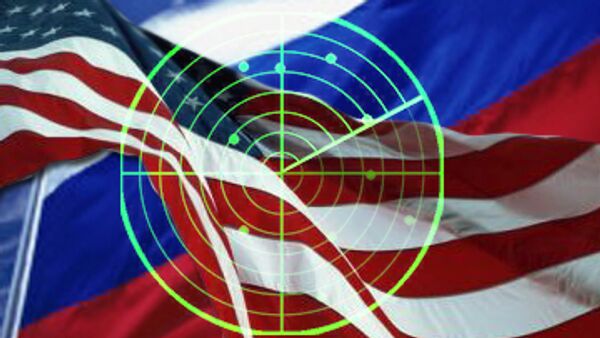MOSCOW, July 2 (RIA Novosti) - Moscow will discuss a new arms reduction deal with Washington only in connection with U.S. plans for a missile shield in central Europe, the Russian prime minister's spokesman said on Thursday.
Russia and the United States have been involved in comprehensive talks over a new nuclear arms reduction deal to replace the START 1 treaty, which expires in December. Russian and U.S. experts agreed to report the results at the Russian-U.S. summit in Moscow in July.
"This link is well-grounded and we have explained our position on this issue to our American partners during three rounds of talks," Dmitry Peskov said on Echo Moskvy radio.
Moscow has repeatedly stated that any arms cuts would only be possible if the United States alleviated Russia's concerns over the European component of its defense shield, which is planned to comprise a radar in the Czech Republic and 10 interceptor missiles in Poland.
"I am certain that this position will be reiterated during the upcoming meeting [between the two presidents] because we cannot discuss the reduction of strategic offensive weapons without clarifying the U.S. plans on missile defenses in Europe. It would be illogical," Peskov said.
The START 1 treaty obliges Russia and the United States to reduce nuclear warheads to 6,000 and their delivery vehicles to 1,600 each. In 2002, a follow-up agreement on strategic offensive arms reduction was concluded in Moscow. The document, known as the Moscow Treaty, envisioned cuts to 1,700-2,200 warheads by December 2012.
Russia, which proposed a new arms reduction agreement in 2005, expects Washington to agree on a deal that would restrict not only the numbers of nuclear warheads, but also place limits on all existing kinds of delivery vehicles.
Sergei Ryabkov, a Russian deputy foreign minister, said on Wednesday that Russia and the United States have made more significant progress in the preparation of a new strategic arms reduction treaty than the sides expected.
He expressed the hope that the sides would be able "to prepare a comprehensive document outlining the verification measures and information exchange procedures, which contain provisions to ensure equal security and significant reduction of strategic offensive weapons through effective verification" by December this year.
According to a report published by the U.S. State Department in April, as of January 1 Russia had 3,909 nuclear warheads and 814 delivery vehicles, including ground-based intercontinental ballistic missiles (ICBM), submarine launched ballistic missiles (SLBM) and strategic bombers.
The same report said the United States had 5,576 warheads and 1,198 delivery vehicles.


